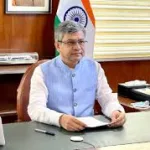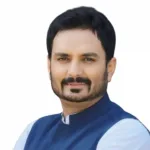Srinagar, July 06: In Jammu and Kashmir, widespread public hesitation and persistent myths surrounding organ donation continue to cost lives, despite the life-saving potential of transplants. Patients remain on waiting lists as donor numbers stay critically low, underscoring a deepening organ shortage in the region.
J&K currently has three kidney transplant centers: Government Medical College Jammu, Government Medical College Srinagar, and the Sher-i-Kashmir Institute of Medical Sciences (SKIMS) Srinagar.
Since 1999, SKIMS has been a leading renal transplant center in North India, gaining a reputation for its successful kidney transplant program. According to doctors, SKIMS has performed approximately 700 kidney transplants to date, significantly benefiting patients with chronic kidney disease.
SKIMS is a key contributor to the country’s organ transplant program, helping bridge the the nationwide gap in kidney transplants, which remain limited across the country. The center currently conducts about four to five transplants each month, totaling 30 to 50 annually.
Similarly, GMC Jammu carries out approximately one transplant every month. GMC Srinagar facility at the Super Specialty Hospital which got registration from the Ministry of Health and Family Welfare, Government of India also performs kidney transplants.
Dr Irfan Lone Transplant Coordinator, State Organ and Tissue Transplant Organisation (SOTTO) Jammu and Kashmir said in order to encourage more and more people to go for organ transplants SOTTO J&K has been conducting awareness activities among people and promote live donation as well as after death donation (brain stem death).
“Organ donation is possible but people do not come forward. People still have hesitation. Organ donation can save many lives. We get patients who have no one to give them organs,” he said.
He said SOTTO has been encouraging attendants of brain-dead patients in hospital ICUs to consider organ donation, but the initiative has seen no success as hesitation, myths and reluctance among people persist.
Dr.Irfan said that many young people in J&K and across the country lose their lives in fatal road accidents, and organ donation has the potential to save lives in such tragic cases. “Organ donation is limited and it takes a lot of counselling for the people,” he said.
SOTTO J&K, which operates under the National Organ Transplant Programme (NOTP) of the Ministry of Health & Family Welfare, Government of India with its office at Super Specialty Hospital Jammu, also monitors and addresses issues related to illegal organ donations and transplants.
Over the years, Jammu and Kashmir has seen a rise in Chronic Kidney diseases largely driven by lifestyle changes. Major causes of kidney failure include high blood pressure, diabetes, smoking, inadequate fluid intake, and excessive use of painkillers.







